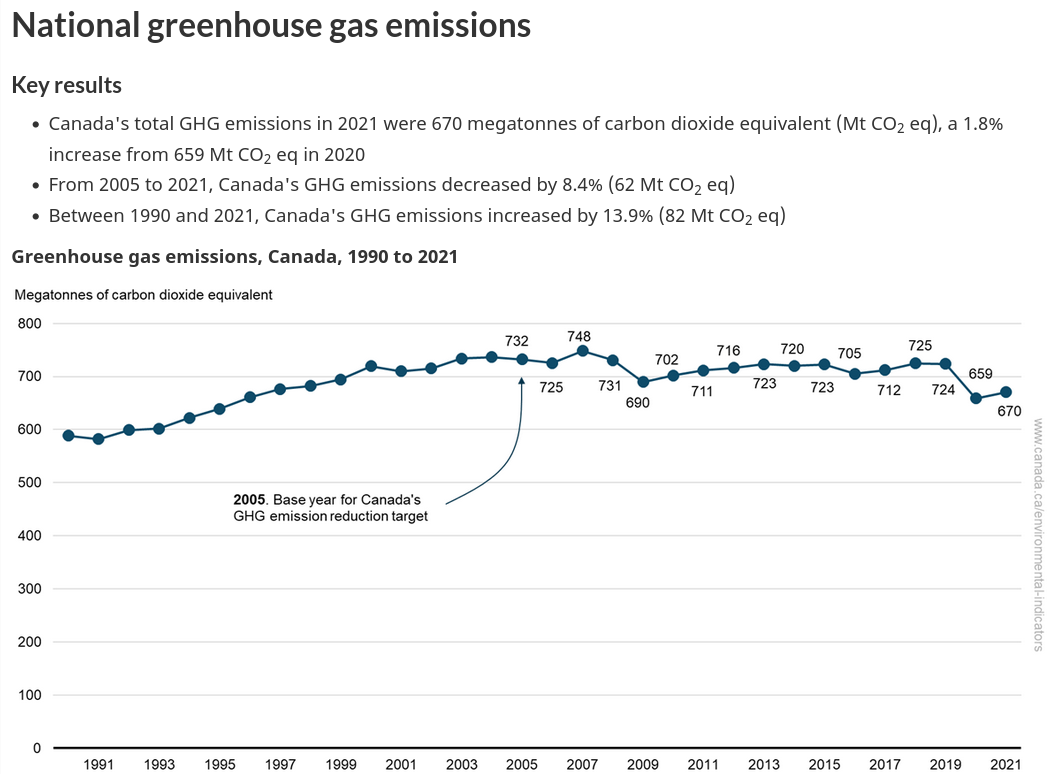July 18, 2023
Hydrogen
Some hydrogen as a fuel facts from overly optimistic IEA.
- Only 5% of attempted global clean hydrogen projects by volume move forward to investment stage.
- 70M tonnes of clean (not just green) hydrogen a year will need to be produced by 2030 under net zero goals.
- Less than 1M tonnes is being produced right now.
- Even if all announced projects were to move ahead, it would only produce 30M tonnes of (green and blue) hydrogen annually by 2030.
- But, only 2M tonnes are actually financed to move ahead.
- Most of the hydrogen produced today is used by refineries and chemical plants.
- Almost all is made using fossil fuels, with no effort to capture the carbon dioxide emissions.
- Even the UK government was forced to abandon a hydrogen home heating trial because it probably would not work.
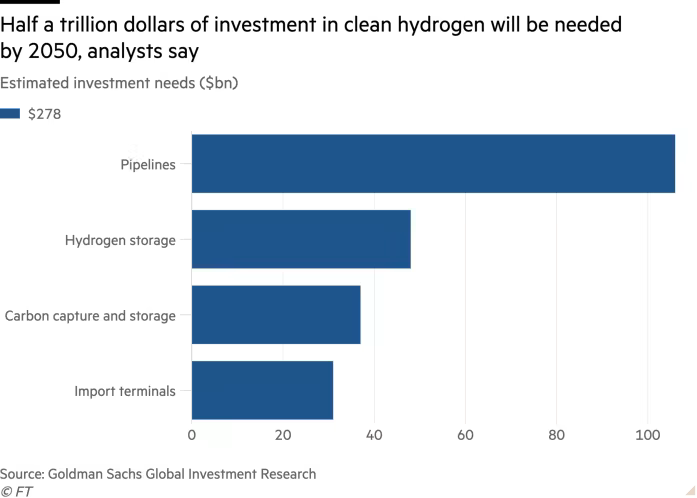
Why?
You cannot currently make, store, transport, or use hydrogen effectively.
Why?
- Green hydrogen competes directly with electricity.
- Hydrogen seeps out of almost every kind of container and has a tendency to explode.
- There are no "hydrogen" pipelines and natural gas pipelines—which still would need retrofitting (see number 2)—are full of natural gas.
- Uses of combustion in the home and in industry use gas, not hydrogen.
It is a niche solution being pushed by the oil and gas sector as a fantasy solution to green energy. They want to keep the promise of combustion and keep using natural gas because they know that if the government builds the infrastructure, there will never be enough green hydrogen produced to fill the pipes, never mind actually use it.
Does the IEA think we are on track for climate technological shift when it comes to energy—really the only measure of moving forward?
According to the IEA, we are on track for 3 out of 47 key areas. The IEA is the most optimistic agency in the UN around climate change transition.
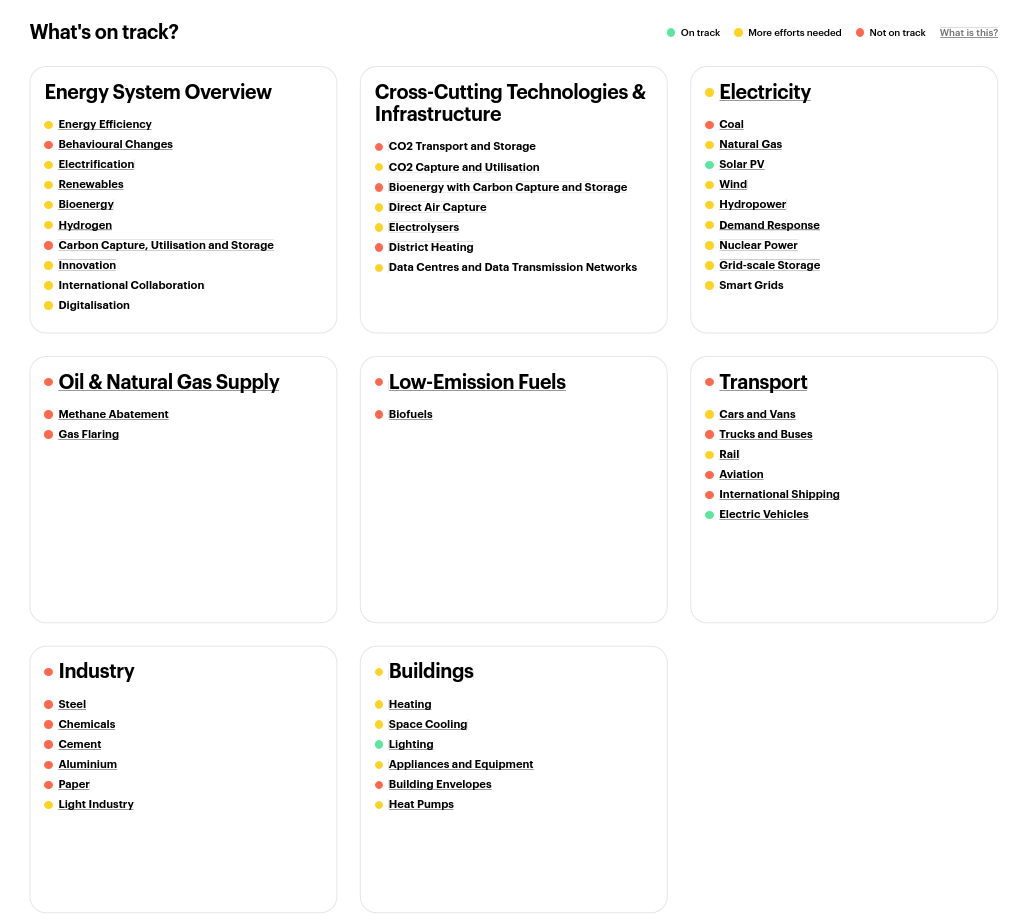
The costs of green energy generation have ceased declining.
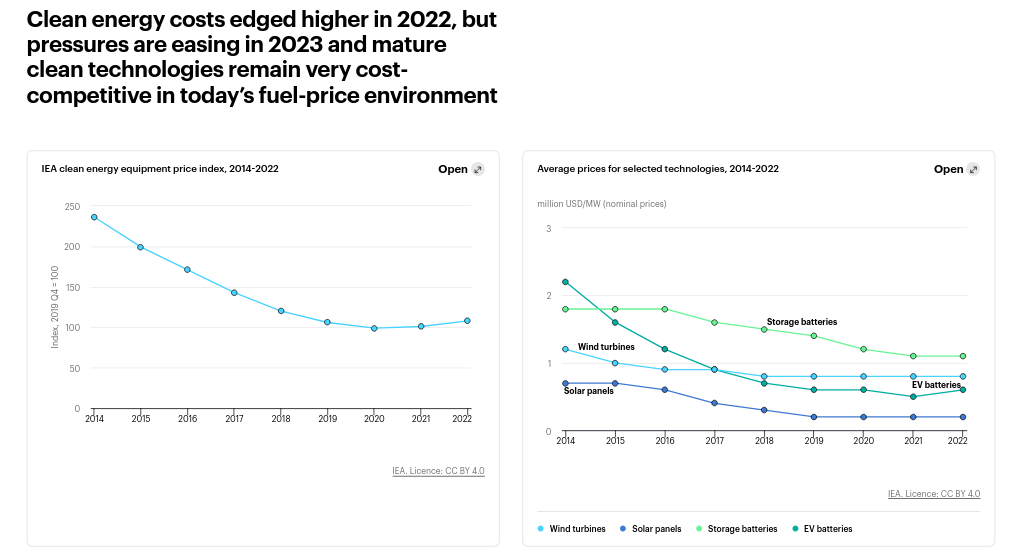
While investment in green energy is increasing, it is not displacing fossil fuel investment.
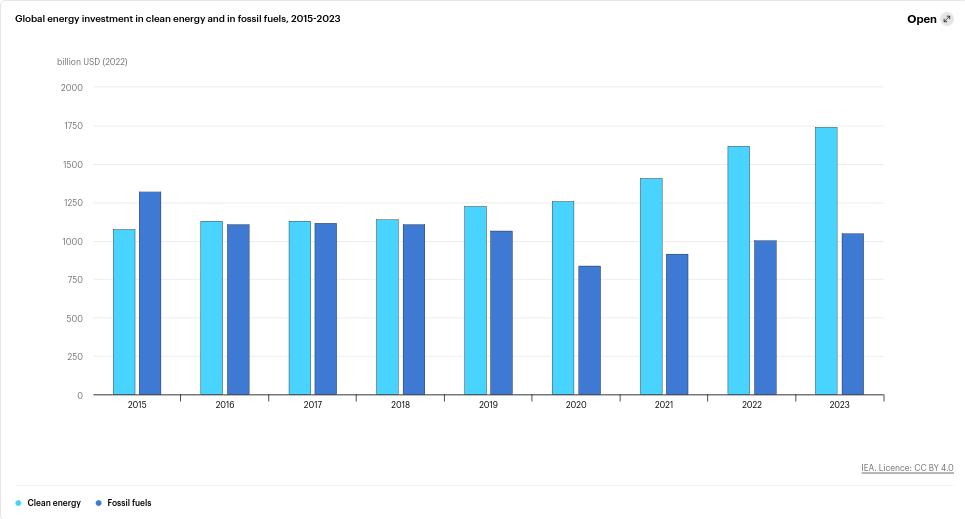
Huge amounts of public money are going to fossil fuel companies to subsidize failed and never will work programs:
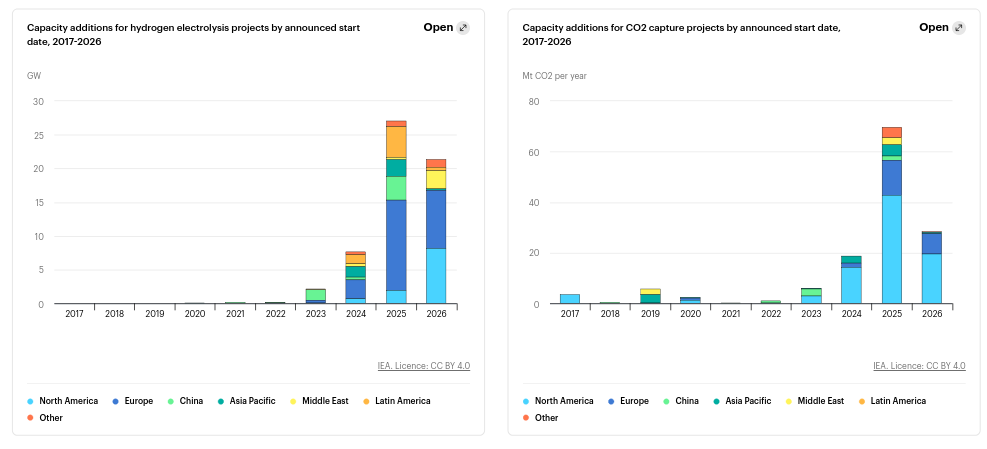
China makes up a huge amount of the clean energy generation investment.
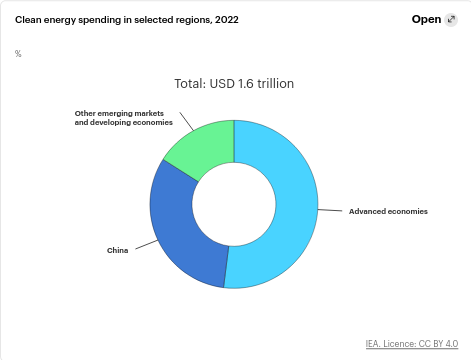
It is hard to suggest that things are moving forward at a rate they need to.
Nuclear power
The other move by Western governments is to lean on the "Small Modular Reactors" (neither small nor modular).
The reason for the SMRs is that the original power plants cost too much and take too long to build for the private sector to be interested in financing them. States are also uninterested in building public power plants that cost this much.
SMRs are not per-Kilowatt cheaper or safer to build (not safer at all, actually), but they are less total per plant. And, American and UK companies like Rolls-Royce think that they have a shot at getting subsidies to build SMRs.
The UK is facing this problem as it tries to not partner with China (a heavy hitter in the nuclear energy space) and also figure out how someone else might pay for building their reactors.
All SMRs in North America currently being suggested to be built are for oil and gas extraction.
Solutions?
We need to move the conversation on from fantasy solutions to climate change.
- New technology will not solve the issue.
- The private sector is not going to invest properly.
- Oil and gas is not going to magically be replaced by their own initiative.
- The price of green energy will not continue to fall to almost nothing.
- Governments will have to spend a lot of money on real solutions.
We need a real conversation about investment. The amounts and where it is going. And we need to stop pretending "just transition" means hydrogen and carbon capture and storage.
